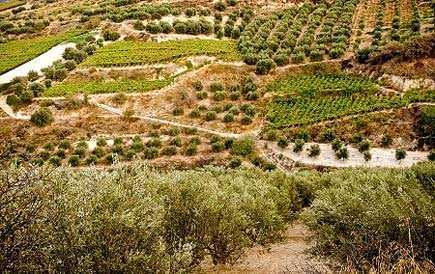
Cretan olive oil producers that were seeking direct aid from the Greek government following devastating weather conditions will have to turn to the European Union first.
The Cretan Association of Olive Oil Producers (SEDIK) sent the letter to the Ministry of Rural Development (MRDF) and Greek Agricultural Insurance Organization (ELGA) late this summer outlining the damage caused to Cretan olive oil crops this year.
Various unfavorable weather conditions hit the island during a critical point of the olive oil season. SEDIK estimated 150 – 200 million euros in income losses and sought aid and assistance.
“ELGA does not agree with us. Yet, these losses are serious and they have decimated our olive oil production significantly causing a decrease of up to 70 percent. It’s a massive blow to Crete’s economy,” said Dr. Nikos Michelakis, the scientific consultant of the Association of Cretan Olive Municipalities in an interview with Olive Oil Times.
SEDIK’s letter stated that due to the extreme conditions from May until early June, olive crops in Crete were decimated. A combination of warm southern winds blew in from Africa with increased frequency and temperatures hovered over 40 C or 104 F for extended periods of time.
SEDIK had sought a change to ELGA statutes so Cretan producers could be reimbursed. In northern Greece, farmers have been compensated due to frosty weather conditions. SEDIK requested that other threatening natural causes be considered for compensation as well. This summer’s weather conditions caused the olives to dehydrate and drop prematurely.
“The response from ELGA is that that the losses are not reimbursable. Furthermore, ELGA believes that the damages can only be covered by state aid that is approved by the EU,” says Michelakis. “However, this type of aid can only be adopted after lengthy process by the EU. This, of course, leads to limited compensation and a delay in payments for more than two to three years. This outcome disappoints Crete’s producers.”





